Cetacean strandings
There are many gaps in the knowledge about cetaceans of the Faklands. A rather important source of information about them come form strandings. At Sea Lion Island, we try to rescue stranded cetaceans if possible, and we collect sample and information about dead individuals and carcasses.
Stranding of orcas happened three times at Sea Lion Island. The first time, a very young killer whale was found stranded on the south sand beach of Sea Lion Island. The orca was rescued by the ESRG, and returned to sea. The second stranding happened almost on the same place, and it was again a young individual, that was returned to sea by the Sea Lion Lodge staff and guests. The third stranding was of a very big adult male, called Leo, that was observed to strand on the north sand beach. Notwithstanding the effort of the ESRG, helped by Sea Lion Lodge staff and guest, and by Falklands Conservation, the orca died of the beach.
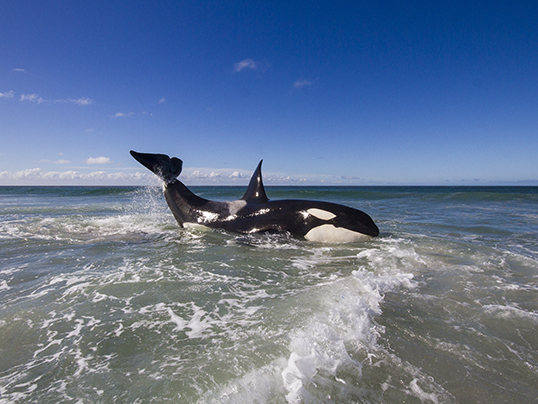
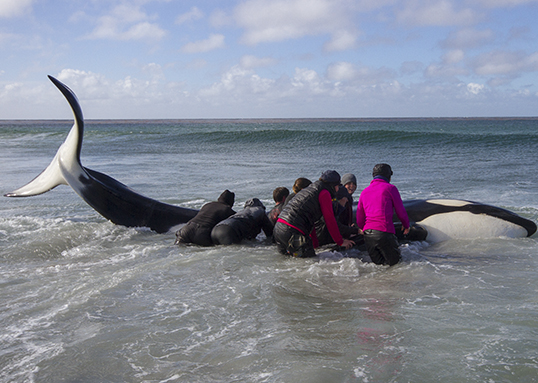
Stranding of an adult male killer whale (named Leo)
In 2018-2019 we had two unusual stranding. The first one regarded two southern right whale dolphins, a species that is very pelagic and it is rarely observed near the coast. The two were found stranded the same day. Notwithstanding the ESRG efforts both of them died. One of the stranded dolphins was donated to the Natural History Museum of London, and the othet to the local Stanley Museum.
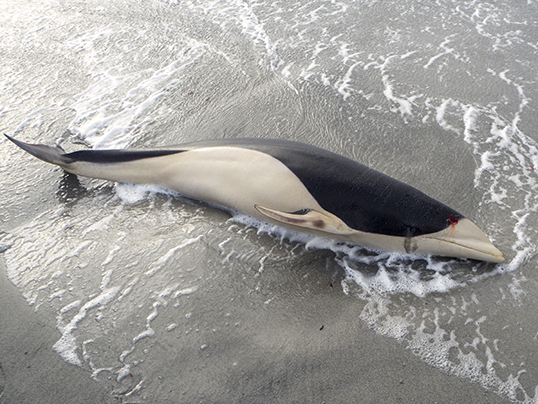
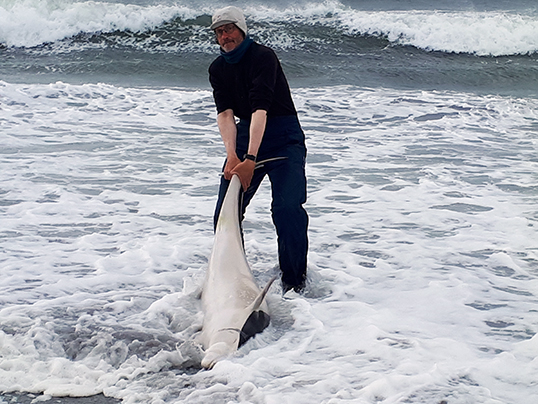
Stranding of a southern right whale dolphin
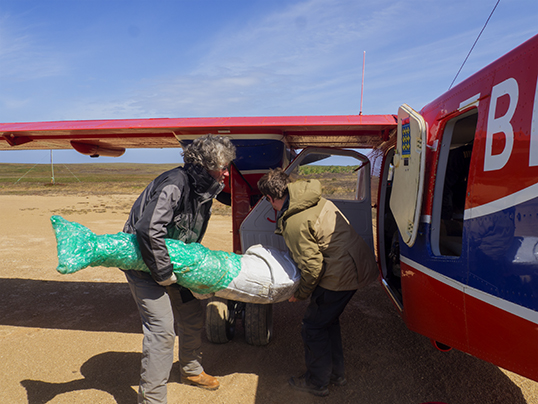
One of the two southern right whale dolphin on its way to the Natural History Museum of London
The second unusual stranding of 2018-2019 regarded a southern right whale, which carcass was found in the East Loaffers bay of Sea Lion Island. The carcass became a focus of the interest not only of a few hundred giant petrel, but also of some of out resident killer whales.
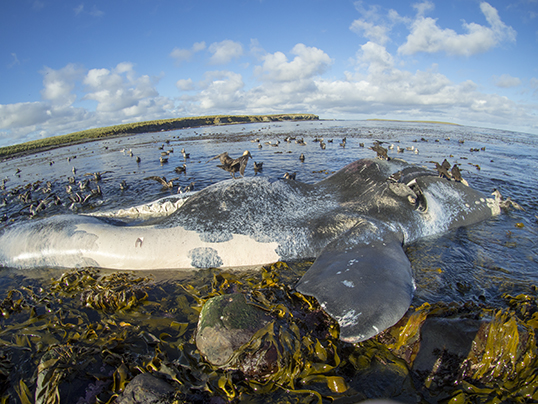
Stranding of a southern right whale
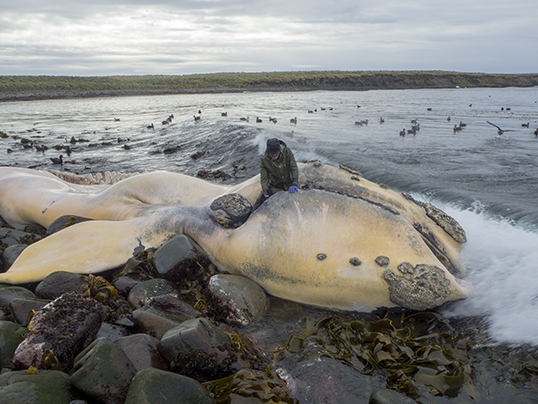
Sampling baleen plates for diet studies
